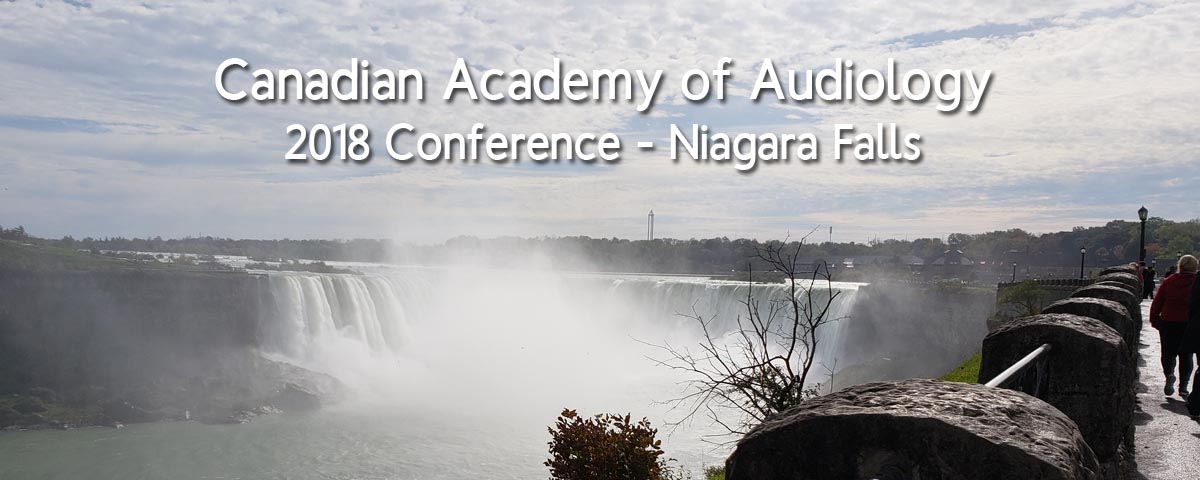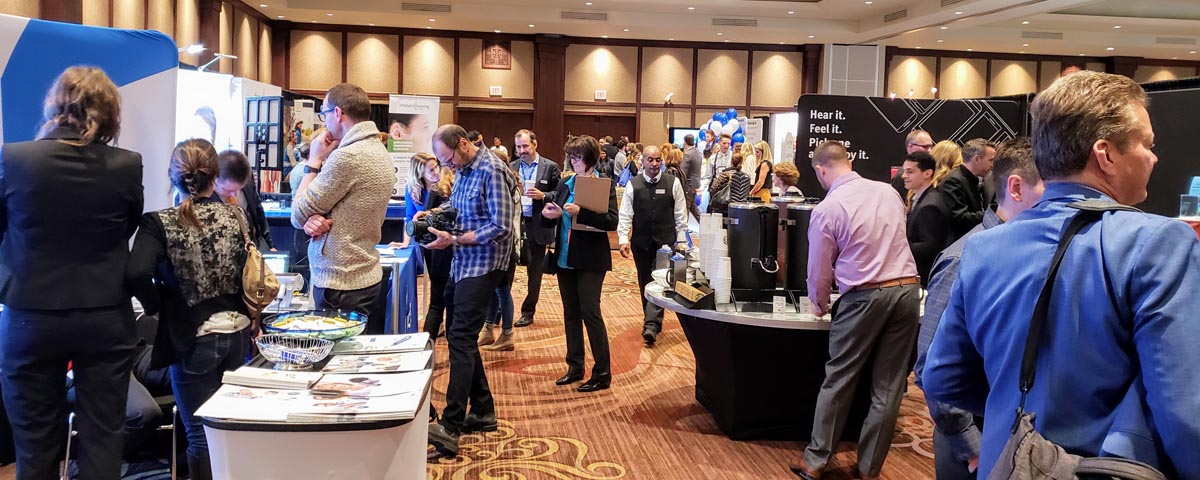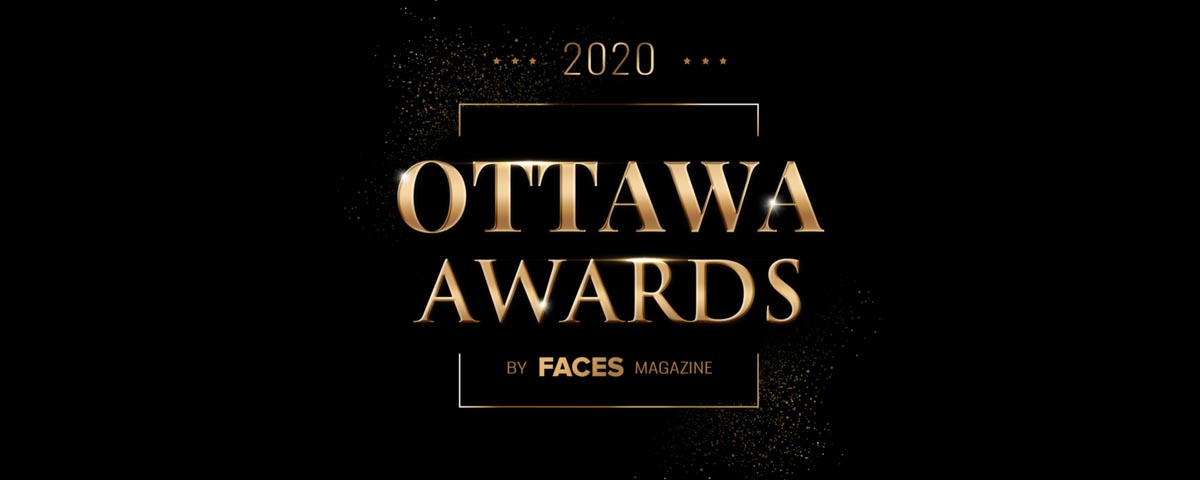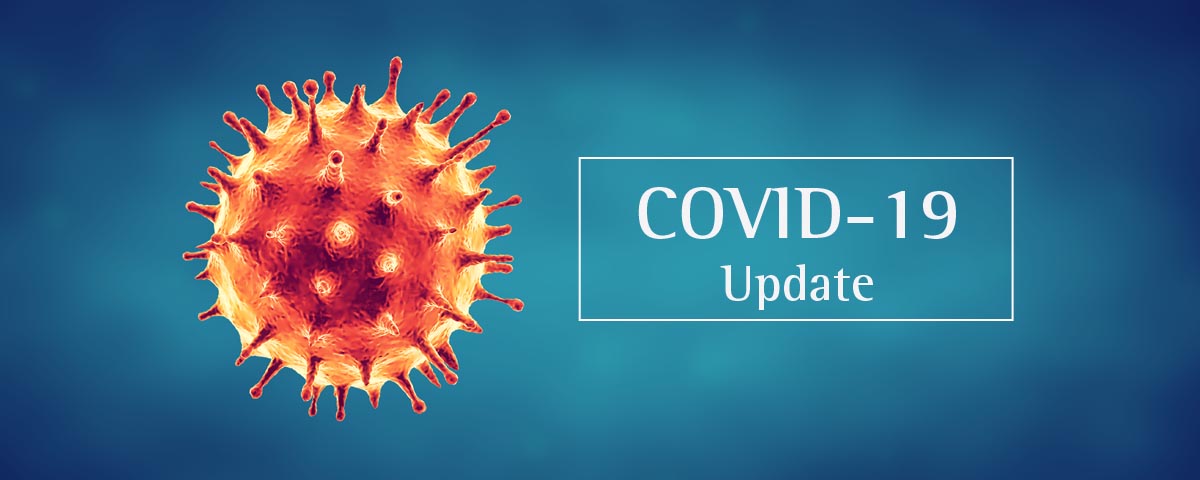The Canadian Academy of Audiology (CAA) is dedicated to enhancing the role of audiologists as primary hearing health care providers through advocacy, education and research. Each year they select a Canadian city to host their annual conference in October. For 2018, Audiologists from all over Canada met in Niagara Falls, ON for the 3 day conference. This event is an annual favourite as Audiologists have the chance to meet with other fellow hearing health care professionals and discuss advances in technology, patient care. It also allows clinicians to meet with researchers and discuss areas of the science that we are continuing to look for improvements and answers for our clients.
The CAA conference provides audiologists with the opportunity to participate in various workshops, seminars, and poster presentations. Topics include advances in vestibular testing, pediatric audiology, cochlear implants, counselling strategies for hearing loss and tinnitus, primary patient centered care and modern audiology through telehealth.
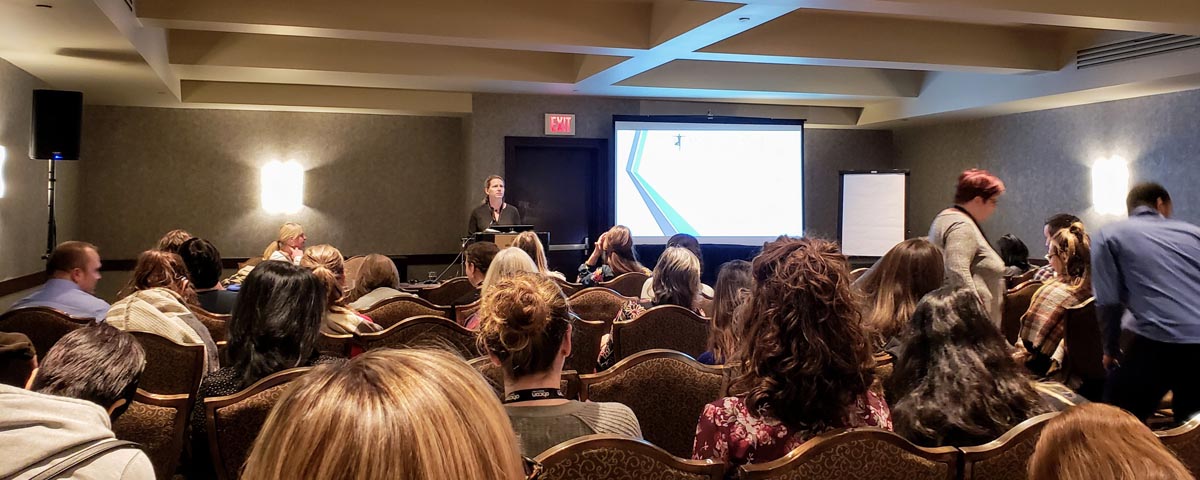
This year two of Davidson’s audiologists, Francine Larochelle and Isabelle Adam, attended the CAA conference. Here is a quick recap of two of their favourite presentations:
Keeping It Real: An Introduction to Person Centred Care & Motivational Tools:
Cherliee Rutherford – the IDA institute, Cape Town, South Africa
Cherilee explained how we have to ‘get our heads out of our audiogram’ and adjust our recommendations and counselling to each individual client, and how our approach needs to be about function/positivity and not about handicap/problem. This topic reinforced the approach that we have at Davidson’s. Hearing test results are an important part of creating a successful plan to improve hearing, but certainly not the only thing. It is important that we have an understanding of the situations and environments where the hard of hearing individual would like to see improvement. We have also been spending more and more time in the last few years to involve family and close friends in our conversations. This allows us to attain a more complete account for how the hearing loss is impacting day-to-day conversations.
Cherliee compares using hearing aids to losing weight. As humans, we often struggle at following recommendations, even if we understand it is for our own good. Changing our habits is one of the most difficult things for us to do. This becomes increasingly difficult as we age. The answer to whether or not we will be able to change our habits often lies in our internal motivation. As clinicians, we have to know where our client stands in terms of their motivation and readiness. She also suggests starting our hearing aid discussion by asking the client “How much do you believe in your ability to use a hearing aid?”. It will be interesting to see how this question plays out as we incorporate it into our client-centered approach.
Sound Processing in the Brain: What Have We Learned from Concussion in Athletes?
Nina Kraus – Northwestern University
Nina Kraus’ presentation on what concussions teach us about how our brain processes speech and sound was very interesting. She is such a passionate person, and a little quirky which makes it funny. The part of her presentation that was particularly eye-opening was how the ‘safe’ noises around us can be bad for our health and cognition. As audiologist, we tell people that these low level noises are safe since they won’t damage the hearing system. In fact, new research is showing that sounds affect us in so many ways. A study looked at students whose classrooms were quiet vs overlooking a highway (background hum). Surprisingly, the background sounds markedly affected their ability to learn. She wanted us to question how we use white noise for sleeping, for babies and for treating tinnitus. She showed how it is stunting cognitive function and development.
Exhibit Hall: A look at the latest products
The exhibitors hall is always a favourite of the show and it did not disappoint. It is an opportunity for clinicians to get a sneak peak of some of the new products coming out. Hearing aid manufacturers have listening demonstrations of the latest products. This lets us experience first hand how these products work and sound. They also have demonstrations on how their latest smartphone app’s and accessories function. These allow your hearing aids to connect directly to your daily devices including televisions and phones.
The newest hearing aids being presented at this years show were the ReSound LiNX Quattro, the Oticon Opn in-the-ear, the Signia Styletto and the Starkey Livio AI (link to information to come soon!).
It is also the best place to see and try out new assistive listening devices. Each year we find new and improved TV listening systems, alerting systems and amplified telephones. There are also new innovations for hearing protection for hunters and musicians.
That is all for this years CAA conference update. We are working on another post that will highlight all of the new hearing aids coming to market in Fall 2018.

